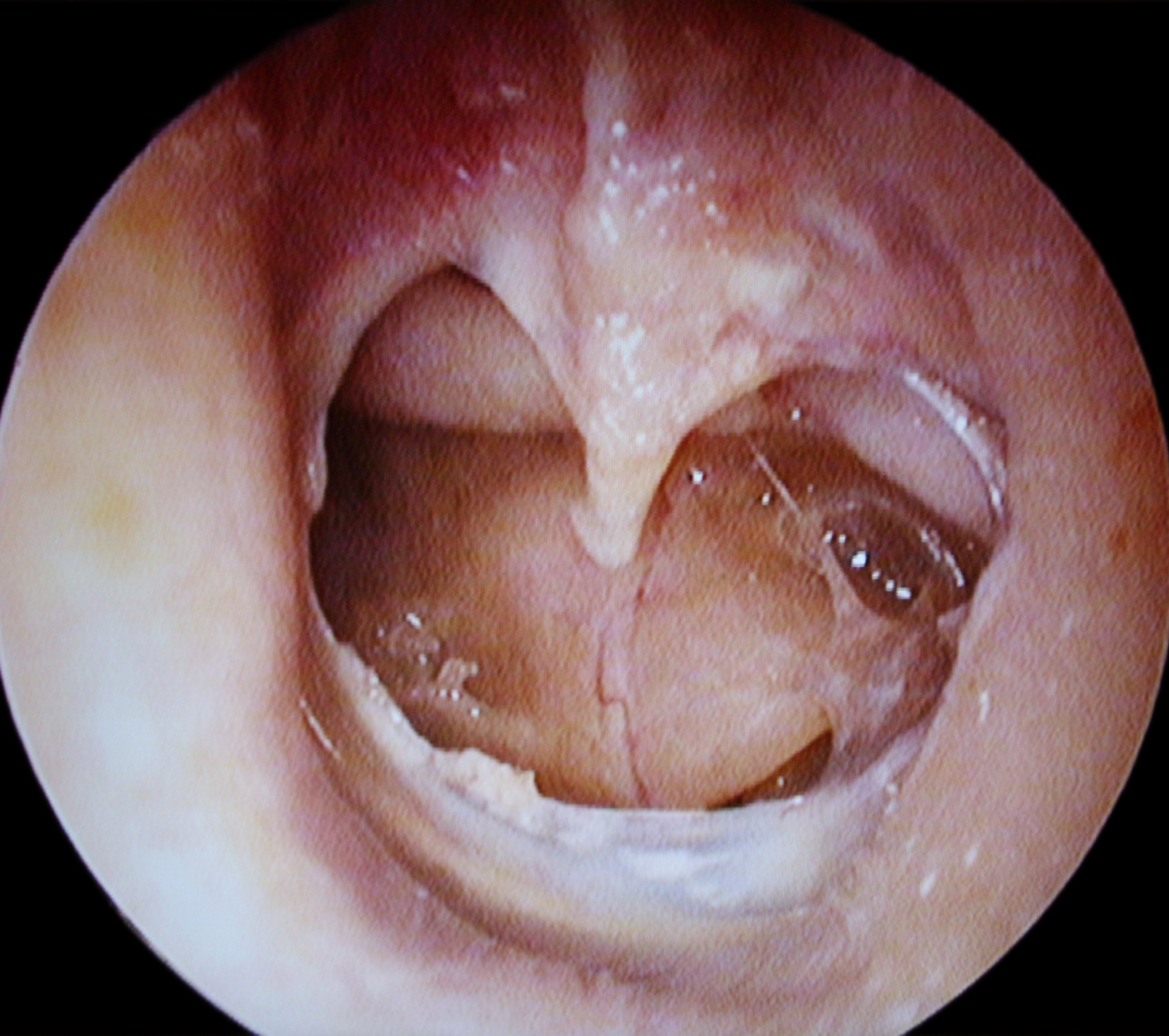Perforated eardrum
(Redirected from Tympanic membrane perforation)
Editor-In-Chief: Prab R Tumpati, MD
Obesity, Sleep & Internal medicine
Founder, WikiMD Wellnesspedia &
W8MD medical weight loss NYC and sleep center NYC
| Perforated eardrum | |
|---|---|

| |
| Synonyms | Tympanic membrane perforation |
| Pronounce | N/A |
| Specialty | N/A |
| Symptoms | Ear pain, hearing loss, tinnitus, vertigo |
| Complications | Chronic otitis media, hearing impairment |
| Onset | Sudden or gradual |
| Duration | Varies, can be temporary or permanent |
| Types | N/A |
| Causes | Infection, trauma, barotrauma, foreign body |
| Risks | Swimming, scuba diving, air travel |
| Diagnosis | Otoscopy, audiometry |
| Differential diagnosis | Otitis media, cholesteatoma |
| Prevention | Avoiding ear trauma, treating infections promptly |
| Treatment | Observation, antibiotics, surgery |
| Medication | N/A |
| Prognosis | Generally good with treatment |
| Frequency | Common |
| Deaths | N/A |
Perforated eardrum or tympanic membrane perforation is a condition where the thin membrane separating the external ear from the middle ear, known as the tympanic membrane, is ruptured or punctured. This can result in hearing loss and can also make the ear more susceptible to infections.
Causes[edit | edit source]
Perforated eardrum can be caused by a variety of factors, including:
- Ear infections: These can cause a buildup of pressure in the middle ear, which can lead to a rupture of the tympanic membrane.
- Physical trauma: This can include a blow to the ear, a sudden change in air pressure, or inserting an object into the ear.
- Loud noises: Exposure to extremely loud noises, such as an explosion, can cause the eardrum to rupture.
- Barotrauma: This is damage to the ear due to a change in pressure, such as when flying or diving.
Symptoms[edit | edit source]
The symptoms of a perforated eardrum can include:
- Pain in the ear
- Hearing loss
- Tinnitus (ringing in the ear)
- Vertigo (a sense of spinning)
- Otorrhea (discharge from the ear)
Diagnosis[edit | edit source]
A perforated eardrum can be diagnosed through a physical examination of the ear using an otoscope. In some cases, a tympanometry test may be used to measure the movement of the eardrum.
Treatment[edit | edit source]
Treatment for a perforated eardrum depends on the size and location of the perforation, as well as the patient's symptoms. In some cases, the eardrum may heal on its own without treatment. In other cases, treatment may include:
- Antibiotics to prevent or treat infection
- Pain medication to relieve discomfort
- Surgery to repair the perforation
See also[edit | edit source]
Search WikiMD
Ad.Tired of being Overweight? Try W8MD's physician weight loss program.
Semaglutide (Ozempic / Wegovy and Tirzepatide (Mounjaro / Zepbound) available.
Advertise on WikiMD
|
WikiMD's Wellness Encyclopedia |
| Let Food Be Thy Medicine Medicine Thy Food - Hippocrates |
Translate this page: - East Asian
中文,
日本,
한국어,
South Asian
हिन्दी,
தமிழ்,
తెలుగు,
Urdu,
ಕನ್ನಡ,
Southeast Asian
Indonesian,
Vietnamese,
Thai,
မြန်မာဘာသာ,
বাংলা
European
español,
Deutsch,
français,
Greek,
português do Brasil,
polski,
română,
русский,
Nederlands,
norsk,
svenska,
suomi,
Italian
Middle Eastern & African
عربى,
Turkish,
Persian,
Hebrew,
Afrikaans,
isiZulu,
Kiswahili,
Other
Bulgarian,
Hungarian,
Czech,
Swedish,
മലയാളം,
मराठी,
ਪੰਜਾਬੀ,
ગુજરાતી,
Portuguese,
Ukrainian
Medical Disclaimer: WikiMD is not a substitute for professional medical advice. The information on WikiMD is provided as an information resource only, may be incorrect, outdated or misleading, and is not to be used or relied on for any diagnostic or treatment purposes. Please consult your health care provider before making any healthcare decisions or for guidance about a specific medical condition. WikiMD expressly disclaims responsibility, and shall have no liability, for any damages, loss, injury, or liability whatsoever suffered as a result of your reliance on the information contained in this site. By visiting this site you agree to the foregoing terms and conditions, which may from time to time be changed or supplemented by WikiMD. If you do not agree to the foregoing terms and conditions, you should not enter or use this site. See full disclaimer.
Credits:Most images are courtesy of Wikimedia commons, and templates, categories Wikipedia, licensed under CC BY SA or similar.
Contributors: Prab R. Tumpati, MD


